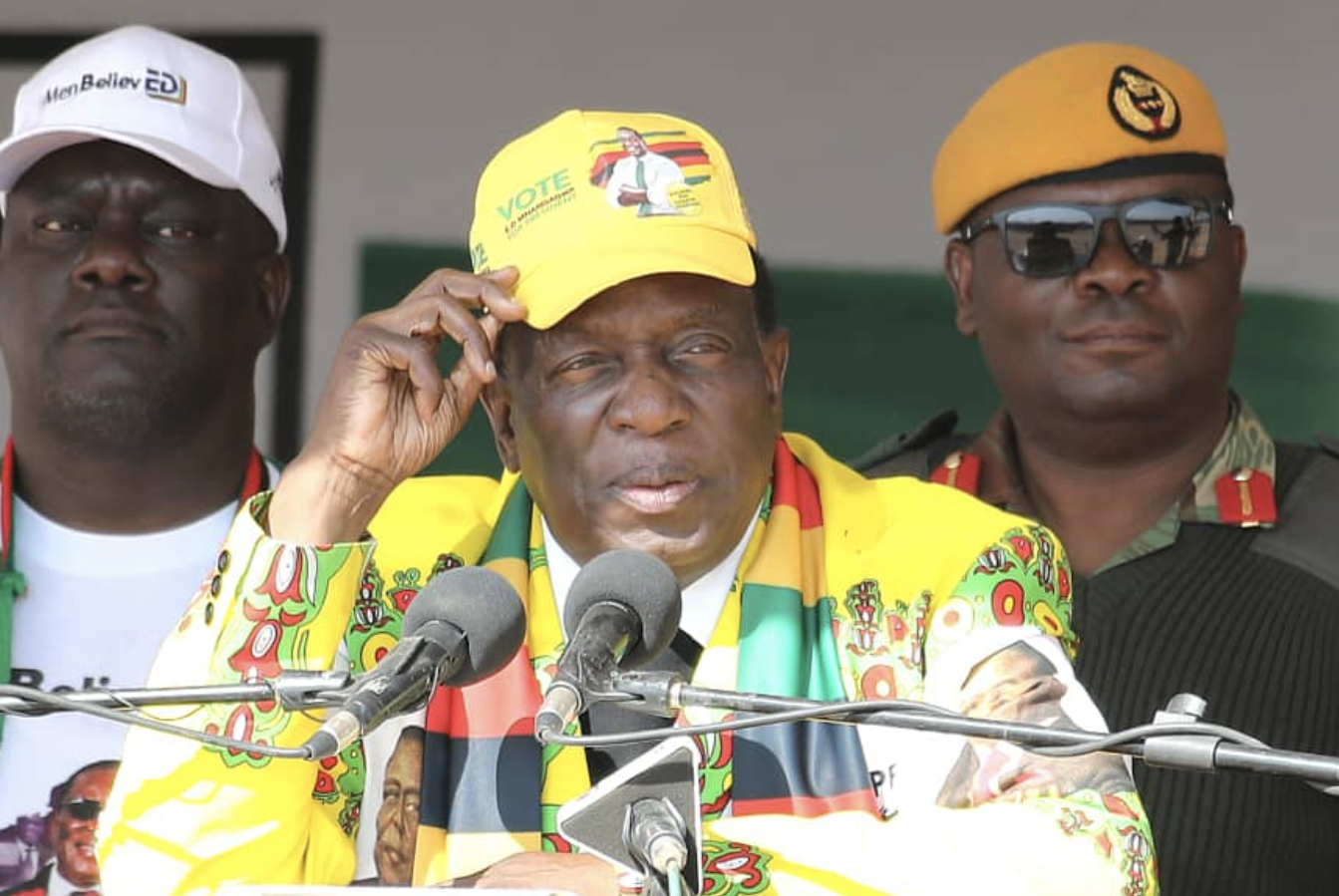A faction leader of the Zimbabwe National Liberation War Veterans Association (ZNLWVA), Andreas Ethan Mathibela, has urged Zanu PF to establish a clear succession plan for selecting its next leader, rather than amending the constitution to allow President Emmerson Mnangagwa to remain in office until 2030.
Zanu PF is facing increasing pressure to amend the constitution, which could potentially extend or remove presidential term limits, allowing President Mnangagwa to remain in power beyond 2028 when his current term ends.
However, Mathibela argues that this approach is not in the best interests of the country or the war veterans, advocating instead for a democratic transition.
Mathibela’s comments come amid rising dissatisfaction within Zanu PF and among the broader population regarding the push to extend Mnangagwa’s tenure.
While war veterans have traditionally been a strong base of support for the ruling party, there appears to be growing division on this issue, with Mathibela’s faction opposing the proposed constitutional changes.
Speaking to journalists in Bulawayo on Tuesday, Mathibela criticised a recent elective congress in Gweru led by Christopher Mutsvangwa’s faction, describing it as an attempt to secure support among war veterans for Mnangagwa’s 2030 agenda.
“To me, war veterans were the only group that had not publicly endorsed the 2030 agenda,” Mathibela remarked. “Those pushing this agenda organized the congress to find someone who would endorse the 2030 mantra, but in truth, it does not benefit the majority of war veterans.”
Mathibela condemned efforts to amend the constitution for personal gain, insisting that such decisions should follow broad consultations with Zimbabweans.
“We gain nothing from advocating for a constitutional amendment for 2030. Who does it benefit?” he questioned. “There has been talk among the public, and among veterans, that there must be wide consultation in the spirit of national unity.”
He said there is a need for a well-defined succession plan within Zanu PF, allowing for a democratic process in choosing the next party and national leader.
“The succession plan should be encouraged because it allows us to support candidates who align with our vision. It shouldn’t be the exclusive right of a political party, as this country belongs to all of us.”
Mathibela stressed that any future leader should be a unifier, free from tribal biases, and committed to tackling corruption.
“The succession plan must identify candidates who embody these qualities as we approach 2028,” he added.
He also highlighted the importance of allowing war veterans and the general public to openly discuss and support potential leaders within Zanu PF.
“We have had public debates in our circles about the need for a succession plan. It’s our constitutional right to say who we think should be next in line and to campaign openly, grooming future leaders in the process,” Mathibela said.
“Personally, I may have a preferred candidate, but that’s my right—I don’t want to impose my choice on others who might feel differently.”
Mathibela suggested that seniority should be a key factor in selecting a leader within Zanu PF.
“We can’t have leaders imposed on us without knowing their backgrounds. A leader should naturally emerge, and we believe in respecting seniority. We have senior figures, and they should be supported.”
He added, “You can’t just bring in someone new to protect your interests. Leadership should reflect the people’s choice, and a succession plan must be prioritized because Zanu PF belongs to the people—who better to decide than the people themselves?”
Mathibela stated that a proper succession plan is not only in Zanu PF’s interest but also in the national interest, ensuring that Zimbabwe remains on a path of unity and democratic governance.
“That’s all we are praying for in a democratic space, succession must be encouraged,” he said.

